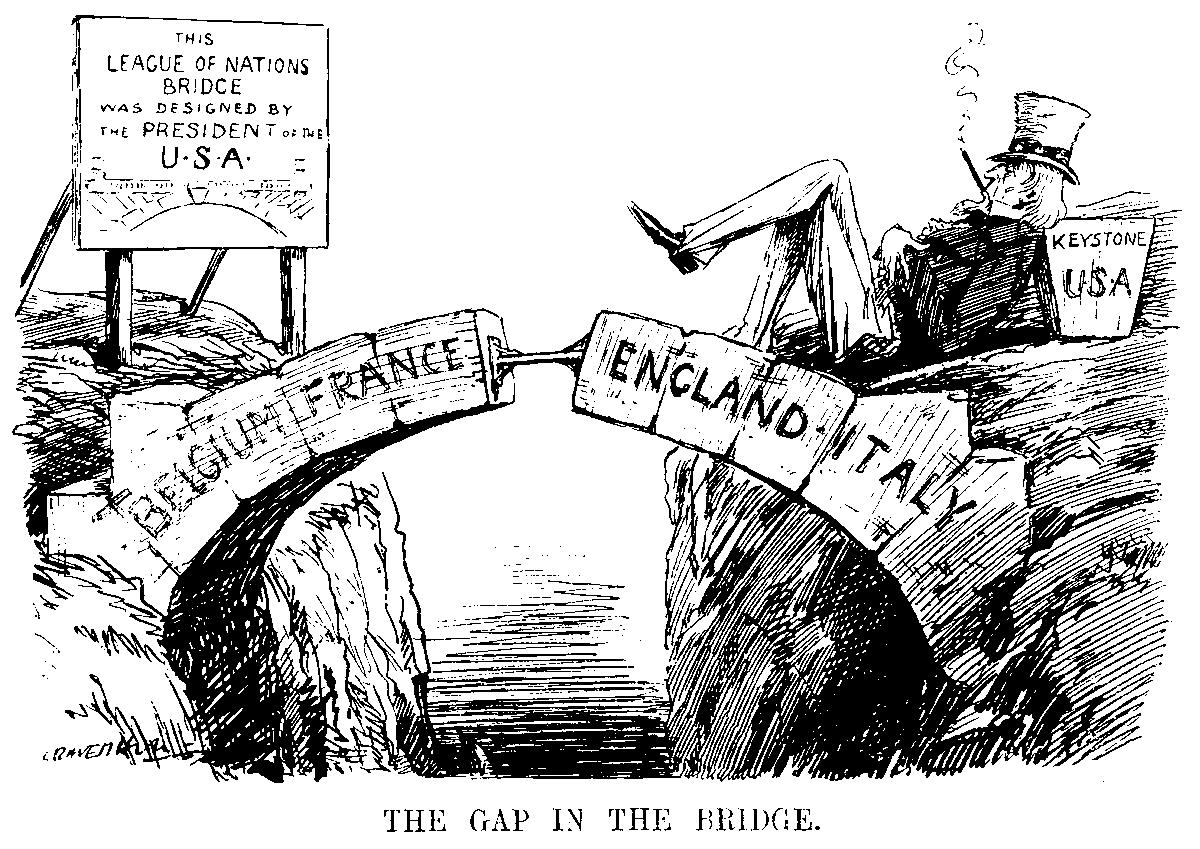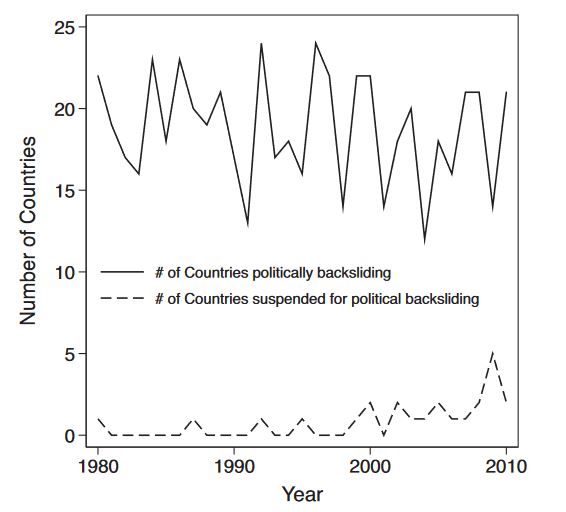We& #39;re now in unprecedented territory when it comes to treaty & international organization exits.
Here& #39;s why
[THREAD]
To be clear, the US hasn’t officially left yet... https://twitter.com/emilyrauhala/status/1266481820893396993">https://twitter.com/emilyrauh...
...and US leaving treaties & international organizations (IOs) isn’t unique to @realDonaldTrump.
See...
See...
...Bush and the ABM Treaty in 2001... https://www.nytimes.com/2001/12/13/international/bush-pulls-out-of-abm-treaty-putin-calls-move-a-mistake.html">https://www.nytimes.com/2001/12/1...
...Reagan and @UNESCO in 1984... https://www.nytimes.com/1984/12/20/us/us-affirms-plan-to-leave-unesco-at-end-of-month.html">https://www.nytimes.com/1984/12/2...
...and Carter and International Labor Organization in 1977 https://www.nytimes.com/1977/11/01/archives/usreported-ready-to-leave-the-i-lo-carter-is-said-to-reach-decision.html">https://www.nytimes.com/1977/11/0...
And these exists don& #39;t include the IOs the US helped create but then didn& #39;t join: most famously, the League of Nations
Oh, and it should be acknowledged that leaving the WHO will probably not be the most consequential treaty/IO exit this year https://www.bbc.com/news/uk-politics-32810887">https://www.bbc.com/news/uk-p...
Given all of the above, why is leaving @WHO putting  https://abs.twimg.com/emoji/v2/... draggable="false" alt="🇺🇸" title="Flag of United States" aria-label="Emoji: Flag of United States"> in unprecedented territory?
https://abs.twimg.com/emoji/v2/... draggable="false" alt="🇺🇸" title="Flag of United States" aria-label="Emoji: Flag of United States"> in unprecedented territory?
Because its the latest in a notable trend by the @realDonaldTrump administration: https://twitter.com/KSchultz3580/status/1266504416351236096">https://twitter.com/KSchultz3...
Because its the latest in a notable trend by the @realDonaldTrump administration: https://twitter.com/KSchultz3580/status/1266504416351236096">https://twitter.com/KSchultz3...
This trend is unprecedented because, it turns out, international organization exit is actually quite rare.
@iBorzyskowski & Felicity Vabulas find about 200 cases of exit from IOs between 1945 & 2014 (a little over 1 per year). https://link.springer.com/article/10.1007/s11558-019-09352-2">https://link.springer.com/article/1...
This figure from their paper shows that the number of withdrawals per year doesn& #39;t show any discernible trend (though there are some notable spikes)
While states can choose to leave IOs, there are also times when states have their IO membership suspended.
But @iBorzyskowski & Felicity Vabulas show in @ISQ_Jrnl that this is even more rare than unilateral exits. https://academic.oup.com/isq/article-abstract/63/1/139/5308143?redirectedFrom=fulltext">https://academic.oup.com/isq/artic...
But @iBorzyskowski & Felicity Vabulas show in @ISQ_Jrnl that this is even more rare than unilateral exits. https://academic.oup.com/isq/article-abstract/63/1/139/5308143?redirectedFrom=fulltext">https://academic.oup.com/isq/artic...
The data don& #39;t go as far back (only to 1980), but the trend is clear: suspensions rarely happen (one reason being that states will leave BEFORE being suspended)
It should be noted that the the rarity of suspension is currently a point of consternation within the EU vis-a-vis Hungary (see, for example, @rdanielkelemen in @monkeycageblog) https://www.washingtonpost.com/politics/2019/12/02/eu-is-supposed-promote-democracy-so-why-do-anti-democratic-politicians-thrive-within-it/">https://www.washingtonpost.com/politics/...
Here is where things get really interesting.
While the ACT of treaty/IO exit is rare, it turns out that many (most?) treaties/IOs have provisions that allow for exit, as discussed by Barb Koremenos & Allison Nau
https://scholarship.law.duke.edu/cgi/viewcontent.cgi?article=1033&context=djcil">https://scholarship.law.duke.edu/cgi/viewc...
While the ACT of treaty/IO exit is rare, it turns out that many (most?) treaties/IOs have provisions that allow for exit, as discussed by Barb Koremenos & Allison Nau
https://scholarship.law.duke.edu/cgi/viewcontent.cgi?article=1033&context=djcil">https://scholarship.law.duke.edu/cgi/viewc...
This builds both on the "Rational Design" work of Koremenos, Lipson, and Snidal in @IntOrgJournal... https://www.cambridge.org/core/journals/international-organization/article/rational-design-of-international-institutions/29B784E99033C7B3FC0564B96A64FE21">https://www.cambridge.org/core/jour...
... and the international law work of Laurence R. Helfer
https://www.jstor.org/stable/pdf/3649442.pdf?casa_token=H_NZD4lKaykAAAAA:sn-WTrrajCGMF6cqD_PlNtGKgVAdv-92p1K9IEjdxG9AnVCUGEWdUgIW9Hicp5wQVw20g86YbxySxpjNTrikLHGaZM_HLki0ZTPEJTPXDesTxK5aiQ">https://www.jstor.org/stable/pd...
https://www.jstor.org/stable/pdf/3649442.pdf?casa_token=H_NZD4lKaykAAAAA:sn-WTrrajCGMF6cqD_PlNtGKgVAdv-92p1K9IEjdxG9AnVCUGEWdUgIW9Hicp5wQVw20g86YbxySxpjNTrikLHGaZM_HLki0ZTPEJTPXDesTxK5aiQ">https://www.jstor.org/stable/pd...
These provisions are included to ease state concerns over uncertainty about future conditions https://www.cambridge.org/core/journals/american-political-science-review/article/contracting-around-international-uncertainty/7A228EC5FA365881333F0C883ECDBB50">https://www.cambridge.org/core/jour...
But it seems that states, despite allowing for exit, are reluctant to leave or close something they invested time into creating.
Why?
Why?
One explanation is the claim famously made by Downs, Rock, and Barsoom in @IntOrgJournal: states select into treaties & IOs that only require actions the states were going to take anyhow.
No reason to leave if there are no real restrictions. https://www.cambridge.org/core/journals/international-organization/article/is-the-good-news-about-compliance-good-news-about-cooperation/636DE333F8E1EC944825DDBFD81BE294">https://www.cambridge.org/core/jour...
No reason to leave if there are no real restrictions. https://www.cambridge.org/core/journals/international-organization/article/is-the-good-news-about-compliance-good-news-about-cooperation/636DE333F8E1EC944825DDBFD81BE294">https://www.cambridge.org/core/jour...
Or states might suffer from a "sunk cost" fallacy.
As Julia Gray in @ISQ_Jrnl finds, when IOs nolonger serve member state needs, IOs become "zombies": the IO continues on paper, but the member states don& #39;t bother to formally shut it down https://academic.oup.com/isq/article/62/1/1/4946301">https://academic.oup.com/isq/artic...
As Julia Gray in @ISQ_Jrnl finds, when IOs nolonger serve member state needs, IOs become "zombies": the IO continues on paper, but the member states don& #39;t bother to formally shut it down https://academic.oup.com/isq/article/62/1/1/4946301">https://academic.oup.com/isq/artic...
In short, while states do PLAN for POSSIBLE exit when designing IOs and treaties, they rarely actually do it.
In that sense, international relations scholarship shows that the behavior of the @realDonaldTrump administration is truly unprecedented.
[END]
In that sense, international relations scholarship shows that the behavior of the @realDonaldTrump administration is truly unprecedented.
[END]

 Read on Twitter
Read on Twitter







